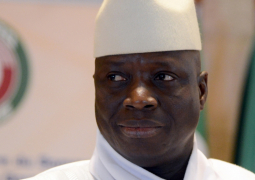According to the activist, the government of The Gambia would not disclose the “so-called Good Practice Document” because it has not been given authorisation “by the supreme powers (EU)” to do so.
The Gambia is one of the leading countries with citizen arrivals in Europe, according to official statistics.
In 2018, one year after the Barrow administration came into being, there were discussions between the government of the Gambia and the EU through their representatives in an attempt to come up with an instrument setting out political commitments with
regard to procedures of return of migrants procedures.
Thus, in May 2018, The EU and The Gambia signed the ‘Good Practices Between The Government Of The Republic Of The Gambia And The European Union For The Efficient Operation Of The Identification And Return Procedures Of Persons Without Authorisation To Stay
’, which is commonly referred to as the Good Practices Document.
However, up to date, the Gambian masses, including the very subjects of this agreement or so (undocumented Gambian migrants staying in Europe who risk being deported at any time and Gambian deportees in the Gambia), don’t have any idea what the provisions of the said agreement are.
Government has refused to disclose the contents of the bilateral agreement, not even in part. The only thing the common masses know about the Agreement is that it entails the operation of the identification and return procedures of Gambians without authorisation to stay in Europe.
However, after the signing of the Agreement May in 2018, mass deportation of Gambians began or rather proliferated in November (six months after signing. Gambia Government’s request, the EU agreed to postpone the start of implementation until 16 November 2018.
In February 2020, another agreement was also finally reached on detailed modalities for future non-scheduled flights from the EU with an incremental approach to number of returnees and number of flights, according to our sources. One successful return operation took place before COVID-19 restrictions brought return operations to a halt.
A lot of individuals, Gambians in Europe and Europeans, made requests to the EU Council to access the document but they have all been turned down by the EU.
EU has made it clear in its response to requesters that it would not disclose the document because it could harm European public’s interests.
As an activist, Yapha himself is one of the many who filed a formal request to the EU Council to have access to the documents relating to the Agreement, only for him to be turned down.
Mr Yapha has been a vocal critic of the Good Practice Document and has also criticised the Government of The Gambia for double standards.
He argued that accepting remittances sent by the migrants without creating something innovative and sustainable for the youths (deportees) is a “wrong Good practice”.
“Therefore, it's clear to us that the so-called ‘Good Practice Document’ isn't intended to be good practice for us but instead a very wrong practice.”
Read Other Articles In Headlines
Information Commission reminds public institutions of obligation
Jan 23, 2025, 10:37 AM




